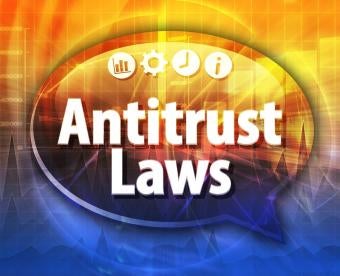In his 2016 presidential campaign, Donald Trump frequently expressed populist themes, rhetorically criticizing “big business” and “special interests,” and signaled an activist antitrust agenda with his comment in October 2016 that a major telecom deal (Time Warner/AT&T) would not be allowed:
"AT&T is buying Time Warner and thus CNN, a deal we will not approve in my administration because it’s too much concentration of power in the hands of too few."
We are now almost three years into the Trump Administration, and we have seen some surprising DOJ (Antitrust Division) enforcement priorities, efforts and outcomes. Below, we highlight some of those surprises and discuss possible consequences.
DOJ Antitrust Surprises
Makan Delrahim, President Trump’s nominee for the Assistant Attorney General for Antitrust post at DOJ, was confirmed by the Senate in September 2017. DOJ antitrust enforcement under Delrahim has been quite eventful.
1. DOJ Challenges Time Warner/AT&T
The first major merger review for Delrahim to consider as AAG was Time Warner/AT&T. DOJ sued to block this vertical deal in November 2017, at least in part because of Delrahim’s view that behavioral relief, of the type historically accepted by DOJ (and FTC) to address vertical merger concerns, should be highly disfavored. Following a bench trial on the antitrust merits, Judge Richard Leon denied DOJ’s injunction request. The D.C. Circuit affirmed Judge Leon’s decision in February 2019.
This litigation outcome is relevant to the ongoing discussion of whether DOJ and FTC should issue “new” vertical merger guidelines, or “update” what are essentially null guidelines issued in 1984 and, if so, what such guidelines should reflect. Both FTC and DOJ are reportedly working on new vertical guidelines. These efforts may be challenging given that most vertical mergers are viewed by regulators and economists as generally beneficial to competition or at least competitively neutral. This litigation outcome also raises questions regarding the scope of DOJ’s willingness to consider behavioral relief in future transactions.
2. DOJ’s Position on Licensing Standard Essential Patents
DOJ has publicly criticized its sister antitrust enforcement agency — the FTC — in FTC’s successful District Court challenge of Qualcomm’s licensing practices relating to standard essential patents addressing 4G transmission technologies. Such a public disagreement between FTC and DOJ on an antitrust policy question is very unusual. Qualcomm has appealed the May 2019 decision of the U.S. District Court for the Northern District of California to the Ninth Circuit, and DOJ filed a “Statement of Interest” in July 2019 with the Ninth Circuit, arguing that the District Court decision “threatens competition, innovation, and national security.”
This Ninth Circuit appeal raises an important policy question regarding the antitrust treatment of certain IP licensing practices. The DOJ’s public rebuke of FTC’s enforcement efforts in this case, however, is a significant surprise, and raises the possibility of public disagreements between the agencies on other antitrust policy questions.
3. DOJ’s Burden in Tunney Act Reviews
DOJ approved the acquisition of Aetna by CVS in October 2018, subject to the divestiture of Aetna’s Medicare Part D prescription drug plan business. The parties closed the transaction in November 2018. The required Tunney Act approval of DOJ’s Proposed Final Judgement reflecting the divestiture obligation, however, proved surprisingly difficult. While that Tunney Act approval finally issued in September 2019 (by the same Judge Richard Leon who tried DOJ’s challenge of Time Warner/AT&T), DOJ challenged Judge Leon’s authority under the Tunney Act to consider competitive effects of the transaction not addressed by DOJ’s Proposed Final Judgement.
Judge Leon’s approval order made clear that, in Judge Leon’s view, a District Court’s review authority under the Tunney Act is not limited to the competition issues identified and challenged by DOJ. Judge Leon also criticized DOJ’s Tunney Act compliance efforts, noting that DOJ’s response to public comments was “rife with conclusory allegations.”
This outcome may increase the probability of contentious Tunney Act reviews in the future, which could affect timing risk and the contractual allocation of antitrust risk in future transactions.
4. DOJ’s Settlement in Sprint/T-Mobile Conflicts with State AG Challenge
DOJ (and various state AGs) reached a settlement in Sprint/T-Mobile in July 2019, with the Tunney Act review of DOJ’s Proposed Final Judgement pending before D.C. District Court Judge Timothy Kelly. FCC Chairman Ajit Pai previously announced his support for the combination (subject to conditions) in May 2019. Nevertheless, other State AGs (led by NY and CA) are challenging the transaction in the Southern District of New York. A trial of the State AG matter is scheduled to begin on December 9, 2019.
Antitrust opposition by State AGs – at least in the form of an independent legal challenge in court – to a merger approved at the federal level by DOJ or FTC is unusual. This State AG challenge raises at least the possibility of one federal court approving a DOJ Proposed Final Judgement as consistent with the “public interest” standard under the Tunney Act, while another federal court enjoins the transaction (perhaps on antitrust grounds not even asserted by DOJ). At the very least, the parallel State AG challenge here may increase the probability in future transactions that one or more State AGs – not satisfied with a DOJ or FTC settlement agreement – will seek independently to enjoin the transaction, thus exposing transactions to greater timing and deal risk. Merger reviews in the EU, in contrast, are conducted either by the EC (DG Comp), or at the EU member-state level, but not both simultaneously.
5. DOJ’s Willingness to Arbitrate Market Definition
In September 2019, DOJ sued to block the proposed acquisition of Aleris Corp. by Novelis Inc., two producers of aluminum for automobile manufacturing. Surprisingly, for the first time, DOJ agreed with the parties to use binding arbitration to define the product market. Whether DOJ (or FTC) will arbitrate this key antitrust issue in other merger challenges is unknown although, as AAG Delrahim has noted, arbitration could well allow (at least some) merger challenges to be resolved more “efficiently and effectively.”
6. DOJ Second Requests in Cannabis-Related Transactions
For reasons unclear, DOJ has issued numerous Second Requests in cannabis-related transactions, including transactions that would appear antitrust non-problematic (applying any traditional market definition and market concentration measures). DOJ reportedly seeks to understand better this industry, which is now legal (to one degree or another) in many states, if not yet at the federal level.
DOJ’s use of its Second Request authority to investigate antitrust non-problematic transactions for the purpose of “studying” a nascent industry is both surprising and perhaps troubling.
7. DOJ Investigations of Big Tech
DOJ and FTC have reportedly “allocated” their federal investigations of Big Tech (with Facebook and Amazon assigned to FTC, and Apple and GOOGLE assigned to DOJ). This is no surprise, as FTC and DOJ have historically allocated various industries between themselves, based primarily on “industry expertise.” But the outcomes of these investigations could yield some very interesting surprises, given the multiplicity of possible conduct questions potentially subject to investigation, the potential for FTC and DOJ disagreement over the legality of similar conduct, and the further possibility of conflicting outcomes from independent State AG investigations (as we now see possible in the treatment of the Sprint/T-Mobile US transaction).




 i
i

